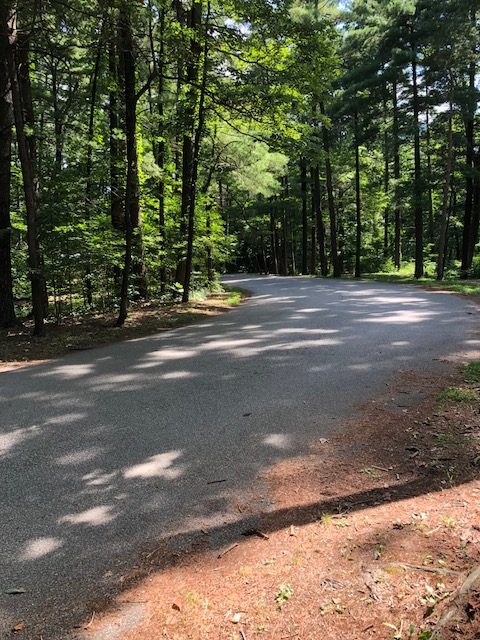by Donna Poole
Long ago our road was just a path the Potawatomi tribe used as they foraged the fields and camped out on Squawfield Road. Pioneers built cabins in our area, and the tribe was friendly to them and helped them through the winters. It was an unspoken understanding that when a native showed up at a cabin with fresh meat he expected to be invited to stay for dinner, especially if he was Chief Baw Beese. And then the government unfairly forced the Potawatomi to leave, and the last moccasin left its print in the dirt on our old country road.
The road was still little more than a cow path when Henry Ford awed Detroit and North America by building his Model T. It didn’t take long before some of his cars showed up on our road and on neighboring backroads. As years went by, soon almost everyone had a gasoline powered vehicle of some sort.
There was one hold out. I remember the story well, but forget his name, so let’s call him Wilbur. Wilbur stuck to his horse and took a lot of good-natured teasing for doing so. As he plodded by, taking forever to get to church or a store, neighbors sometimes hollered, “Get a car, Wilbur!”
Then came the year of the spring rains. Many backroads, ours included, turned to mud. All those lovely Model Ts slid every which way and refused to budge. Along came Wilbur, and graciously pulled out neighbor after neighbor. He didn’t charge a penny, but he got his payment. As he left each grateful farmer, he said, “Get a horse!”
Time passed. The generation of people who told me the stories about the Potawatomi and Wilbur traveled one last time down this old country road. With a swirl of dust, their taillights disappeared in the distance. Now, they are a sweet memory that lingers in the glow of the sun setting over the fields.
I love this dirt road; we’ve lived here forty-eight years. Our oldest daughter was only two when we taught her not to play in the road, lest she get run over by a truck or a tractor. Our other three had their introduction to our road when they bounced down it on their way home from the hospital as newborns.
The road is a metaphor in my mind for our children’s independence. They were thrilled when they could ride their bikes to the corner for the first time without mom and dad. And when they got permission to ride north to the bridge over the St. Joe River, just a slow-moving creek there, that was big stuff.
I remember the kids patiently sitting at the corner, balancing on their bike seats, and looking west down Squawfield Road. They were waiting for their first glimpse of Grandma and Grandpa’s car arriving all the way from New York. As soon as they saw it, they’d pedal home furiously, shouting, “They’re coming! They’re coming!”
Down that road our children drove to school, to their first jobs, to college, to their own homes. And down that road they come back to visit. When they leave, we watch them go until their taillights disappear. They turn on Squawfield, and they’re gone until the next time. It’s the road to independence, and it’s the road back home.
Fourteen grandchildren travel down that road to visit us, thirteen with their parents, one on her own. That one will be leaving in the spring to get her physician’s assistant training. I’m proud of her; I’ll cry when I see her taillights turn onto Squawfield heading for a different state, but I know something. I know she’ll never forget the road back home to Grandpa and Grandma’s is always open to her, wherever we may live. And I hope all our family remembers that.
Two family members live with us, our married daughter, and her husband, and we’re grateful for them. Without them, we don’t know how we would have gotten through the last two plus years of cancer—tough enough—and the treatments—even worse. I can’t count the number of times our daughter has driven me down our old country road.
I love country roads. Thank You, Lord, for all my years on this one. It’s true that “the lines have fallen unto me in pleasant places.” I could have been happy in the city; I was contented when we lived there, but I’m glad for these years of corn and bean fields, for wide blue skies, and country smiles.
Old road, it’s true you’re sometimes impassable in the winter. You may be a mud bog in the spring and a dust bath in the summer, but oh, you make up for it now. You’re breathtaking in the fall.
Someday, I too will leave you for the last time; my taillights will disappear in a swirl of dust. I hope it’s in the fall.
When I leave for the final time and know there’s no coming back, I’ll take one last look to see you in all your autumn glory. Though the place I’m heading will be far more glorious, I’ll glance in my rearview mirror just for a second and say, “You’ve been good to me. Here’s to you, old country road.”



